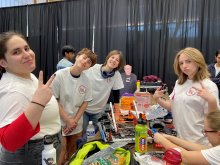
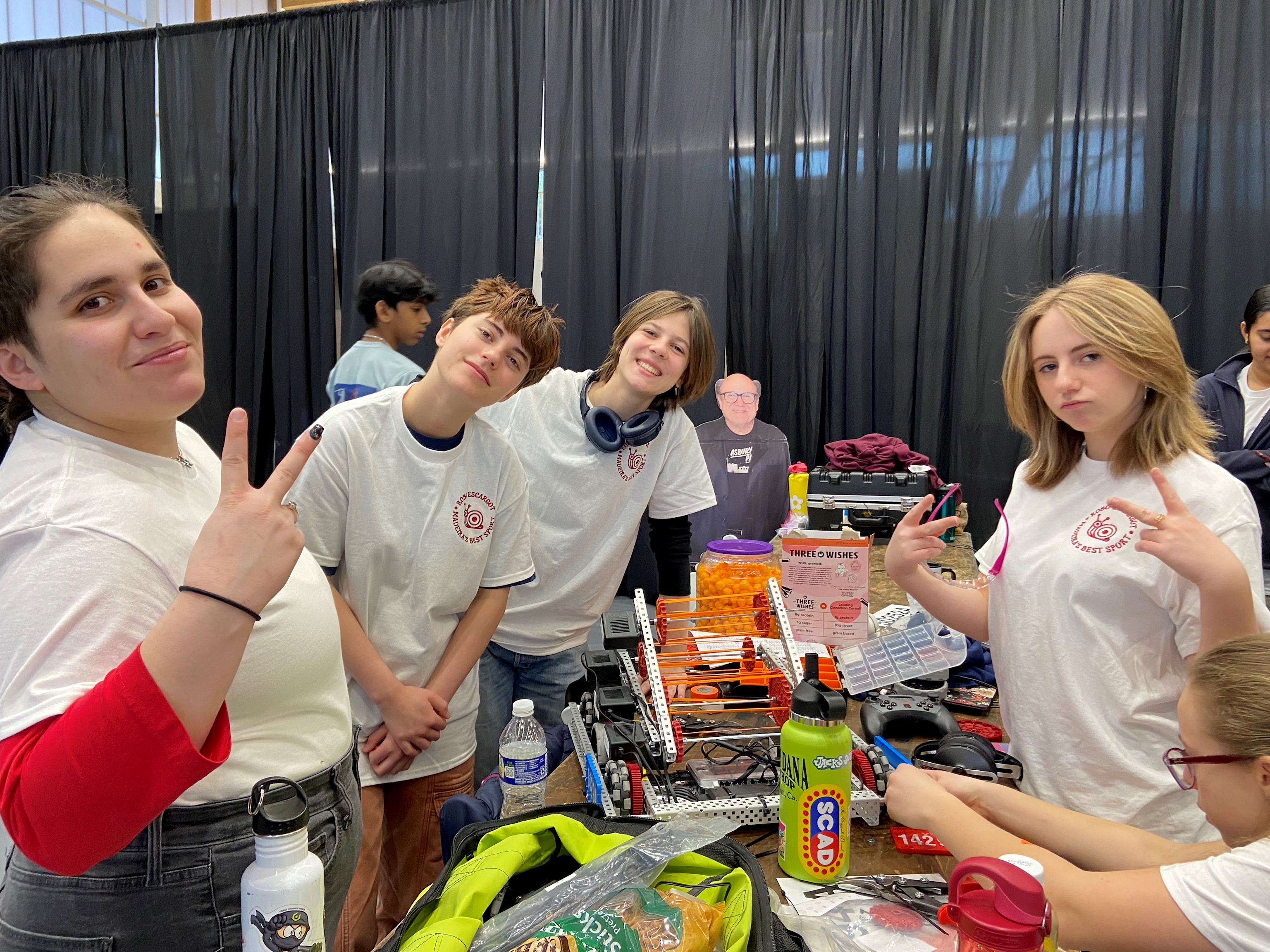
When you examine the participant list from the Potomac School VEX Robotics Competition (VRC), one name stands out among the rest: Robo Escargot. Madeira’s cleverly named team was the only all-female contingent at the January competition. Students viewed this not as a challenge, but as a rallying cry. “I hope that Madeira robotics will ignite a love of robotics in more people at Madeira so we can show the world that you don't have to be a man to do robotics,” shared Antonia Romm ’25.
Team captain Eve Hawkins ’25 vehemently echoes this sentiment. “I think it is important for a girls’ school like ours to have a place where women can pursue STEM at a high level, outside of academic classes and their required extracurriculars. I hope we can provide a space for people who are underrepresented in STEM fields to showcase their skills and become well-known for their talent and creativity in robotics.”
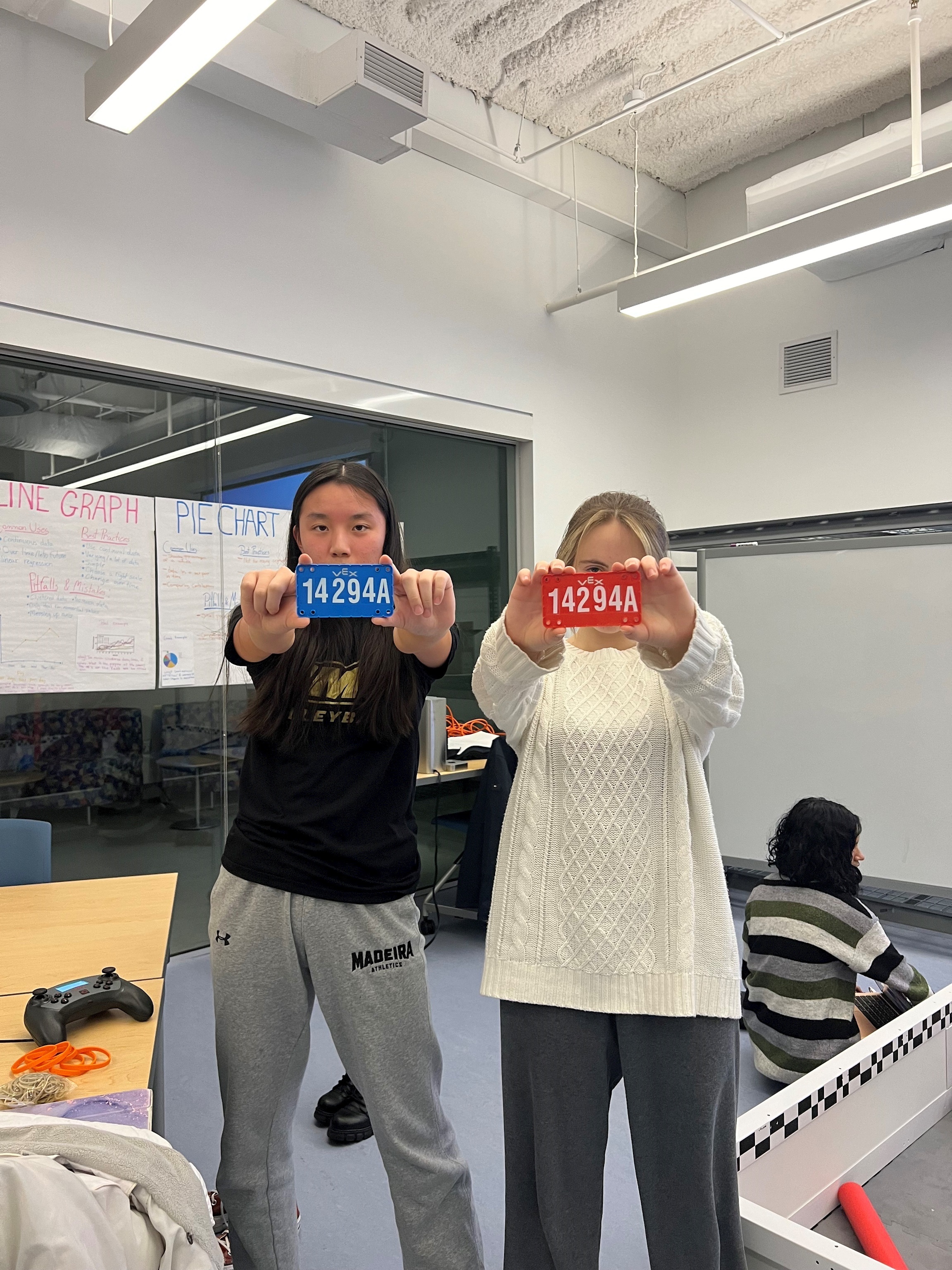
While a number of team members had previously participated in VEX Robotics competitions, this school year was the inaugural season for Robo Escargot. “I decided to start the team because I participated for four years in elementary and middle school,” said Hawkins. “It was one of my favorite extracurriculars because it was one of the only ways I could pursue my passion for engineering. I missed the team environment, and I wanted to get others interested in robotics and find a group of people who also find as much joy in building, programming, and competing as I do.”
Hawkins was not alone in her desire to apply her budding engineering skills outside of the classroom. “I became interested in robotics because I’ve never had any opportunity to apply my building or coding skills,” explained Sofia Larsen ’25. “The team presented itself as a perfect way to do so.” And apply their skills they did.
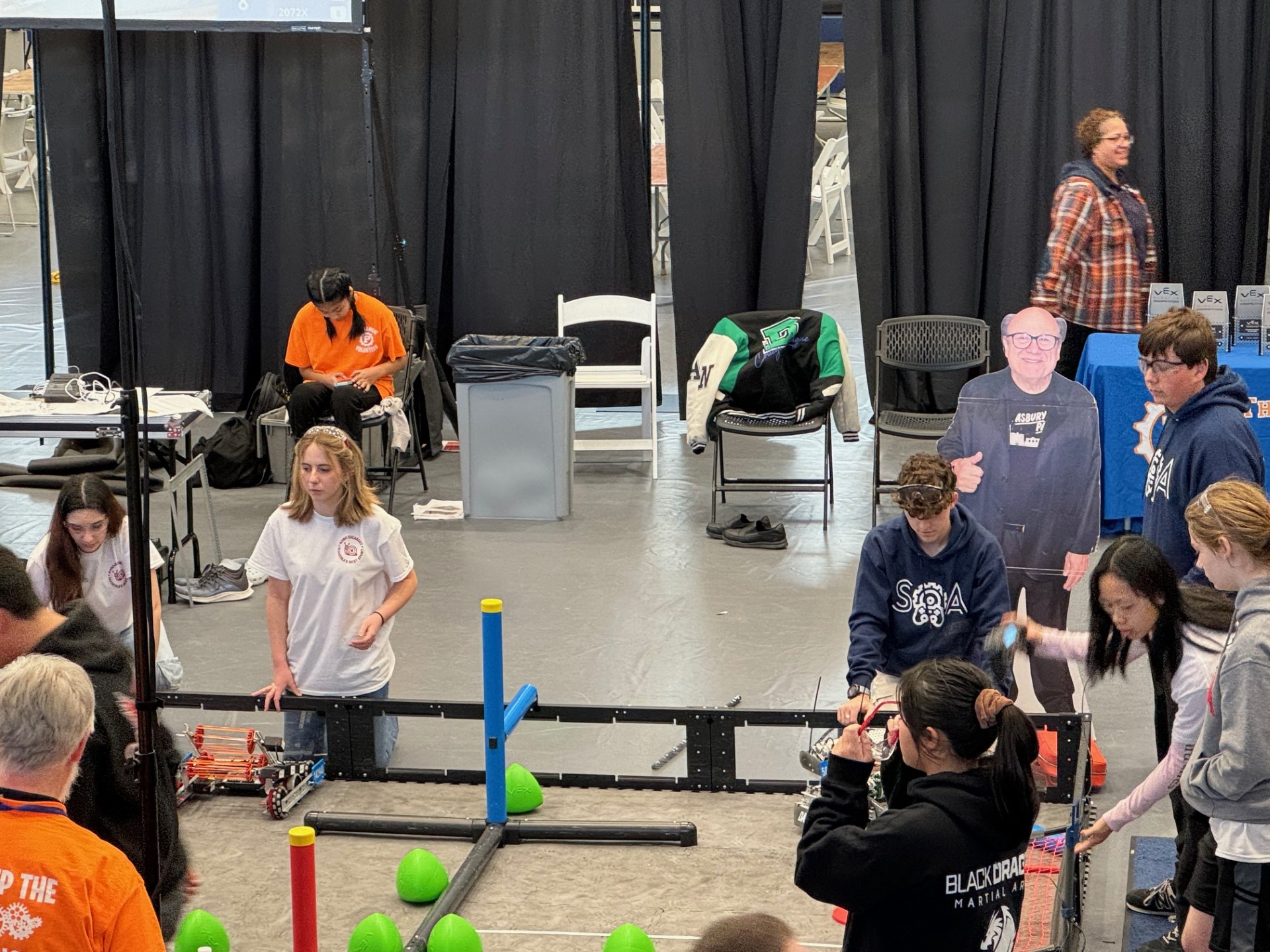
Over the course of several months, the team worked after school and on the weekends to develop programming code, create systems, and build the physical form of their competitive robot. The journey of Robo Escargot was not without its hurdles. Vivian Wang ’25 pointed out the challenge of integrating various STEAM disciplines into a cohesive robot design. Additionally, Romm recounted the painstaking process of constructing the mobile field with limited instructions.
Hawkins reflected further on the season as a whole. “I think the most challenging part was starting from scratch. I had not done a VEX competition for about three years. We had almost no parts to build with in the beginning, and only a few members of our team had ever done robotics. It was difficult to start. Scheduling meetings, ordering materials, teaching everyone to build and code, and learning how to register for the competition were all challenges, but thanks to the amazing Madeira Science department, our advisor Mx. Khozein, and hard work from the team, we did it.”
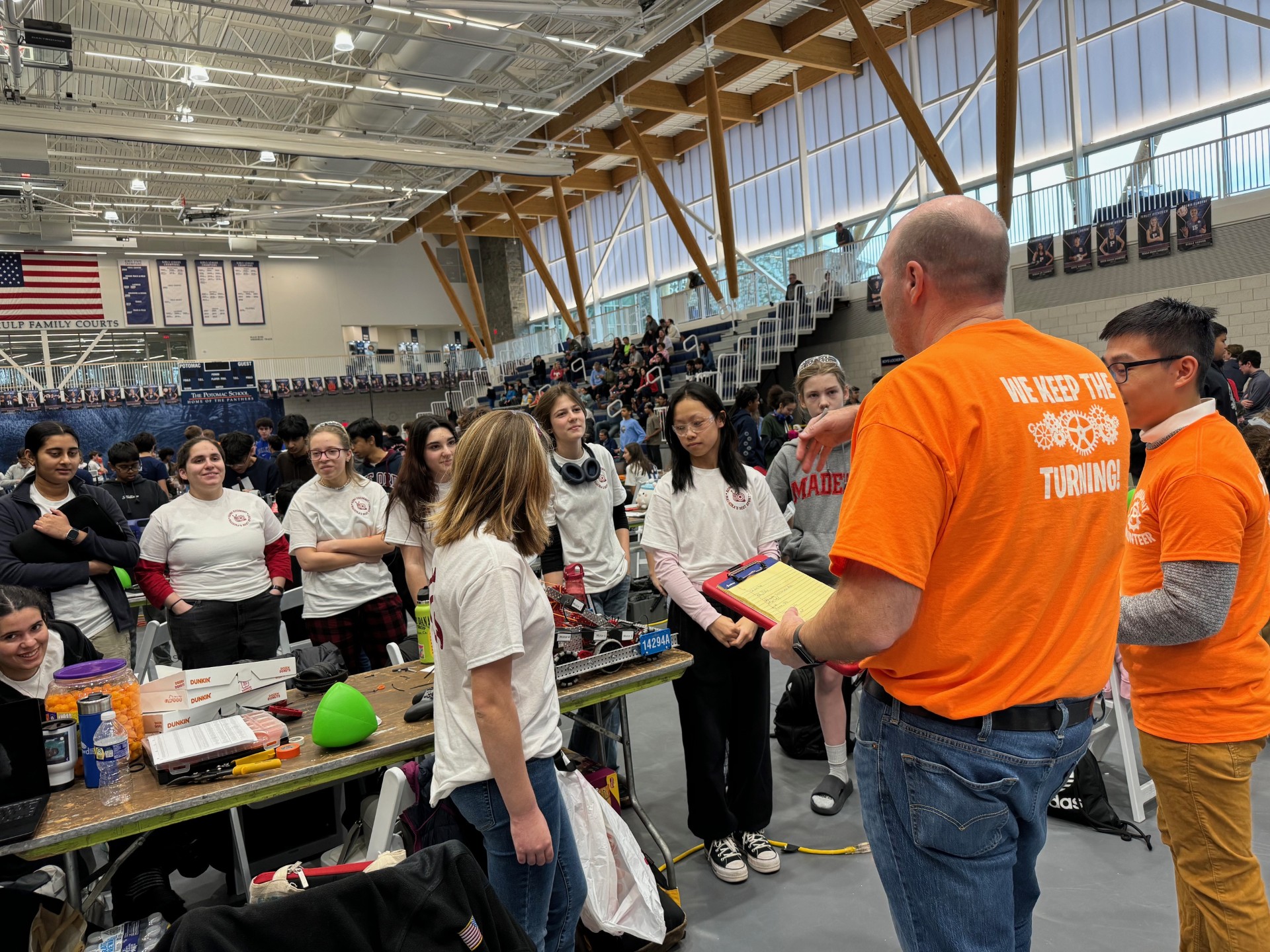
The pressure truly set in when, moments before the registration window closed, the team realized that a portion of their robot extended out beyond the permitted space allowance. Without a saw and with time ticking down, the team had to be quick on their feet and problem solve collectively. Luckily, they were able to make the appropriate adjustments in time.
The months of preparation and rapid adaptation were all worth it in the end. Team Robo Escargot performed well and was ultimately the recipient of the Judges Award.
Proud of her team, Hawkins already has her sights set on next year’s goal: “Our short-term goal is simple: get to Worlds for the 2024-2025 season. It will be a difficult task, but I think we can do it.” The success of Robo Escargot not only demonstrates the talent within The Madeira School but also serves as an inspiration for future endeavors in STEM.
Follow the Robotics team’s journey on Instagram to stay updated on their latest news and preparations. Go Robo Escargot!
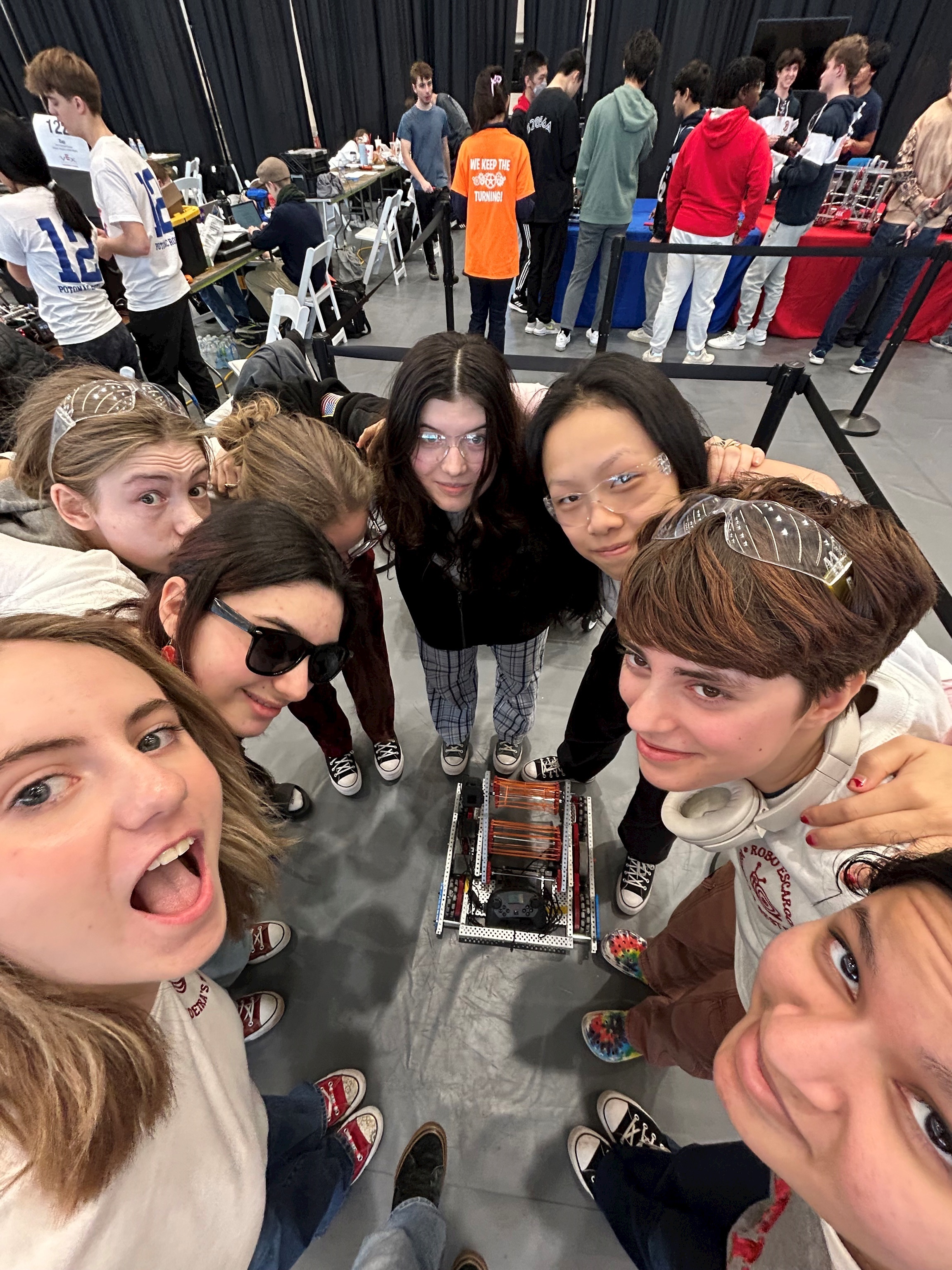
#MadeAtMadeira #MadeiraVEX #MadeiraRobotics #MadeiraSTEAM #MadeiraScience #MadeiraActivities #MadeiraInspired















.png&command_2=resize&height_2=85)


.jpg&command_2=resize&height_2=85)
